
Challenges of online learning during and after the Covid-19 pandemic
With higher learning institutions shut across the world, millions of students had to adapt to new types of learning. Education has changed dramatically, with the distinctive rise of e-learning, whereby teaching is undertaken remotely and on digital platforms. In line with that, UTAR Centre for Learning and Teaching (CLT) successfully organised a webinar titled “Challenges of Teaching Online in the Post-Pandemic Era” on 12 December 2020 via ZOOM.
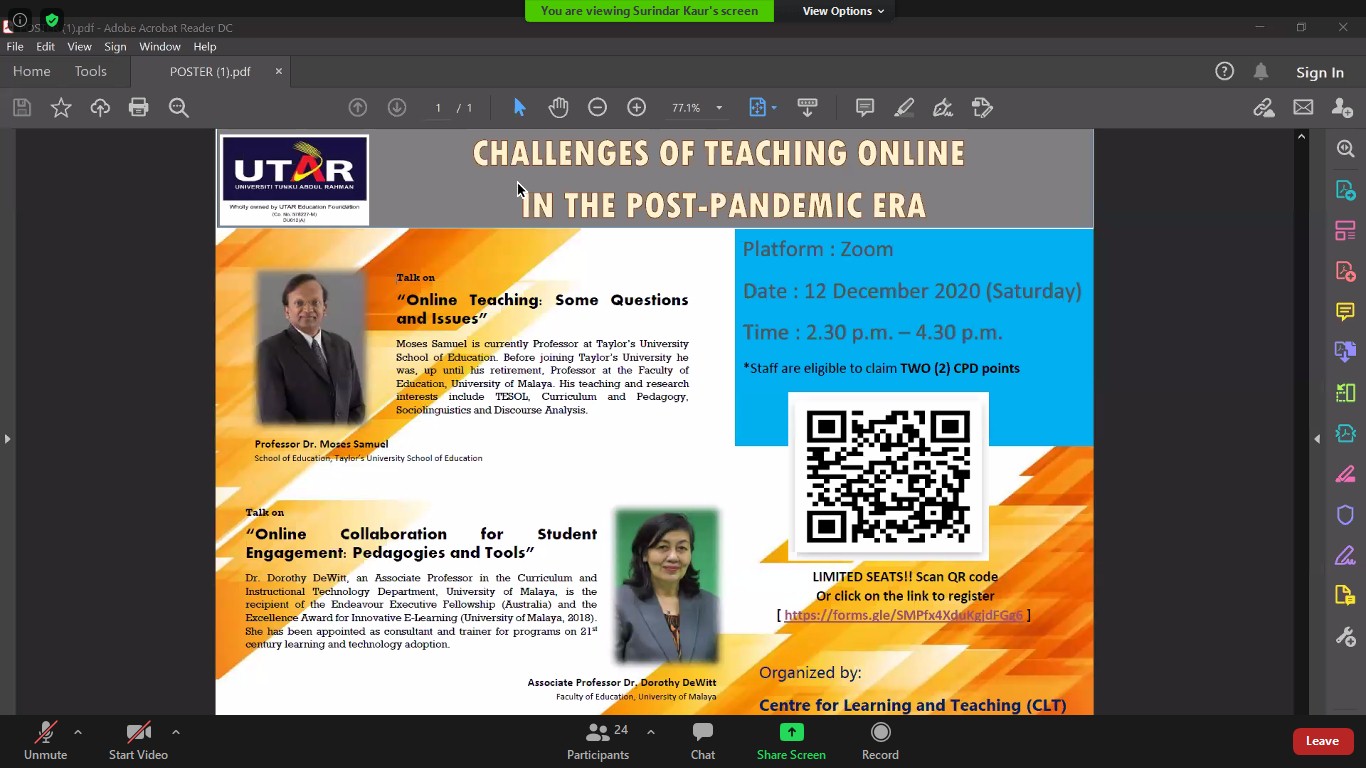
The speakers of the webinar were Prof Moses (top) and Dr Dorothy (below)
Joined by more than 150 participants, the webinar was divided into two talks and they were moderated by Faculty of Arts and Social Science lecturer Surindar Kaur a/p Gurmukh Singh. The first talk of the webinar titled “Online Teaching: Some Questions and Issues” was delivered by Prof Dr Moses Samuel from the School of Education of Taylor’s University. Meanwhile, the second talk, titled “Online Collaboration for Student Engagement: Pedagogies and Tools” was delivered by Assoc Prof Dr Dorothy DeWitt from the Faculty of Education of University of Malaya.
Explaining the meaning of online teaching and its challenges to the participants who were mostly academics and lecturers, Prof Moses elucidated, “The Covid-19 pandemic has been a game-changer in the education sector. There are no doubt some positives in the extent to which online teaching has been implemented. But the crisis has been a stress-test. It has foregrounded critical challenges for online teaching; and technology is not necessarily the panacea that it was touted to be.” His talk also emphasised on the roles of technology in crisis management and some of the emergent terms such as technology as a response to crisis and technology as a considered response to facilitate learning.
He added, “There are challenges to overcome in online teaching and learning. Among the main challenges are access to education and quality of education. Some students without reliable internet access and technology struggle to participate in digital learning. Obviously, there are inequalities between rural and urban areas. However, for those who do have access to the right technology, certainly learning online can be more effective in a number of ways. In terms of quality education, there are also some impacts such as the rise in teacher-centred pedagogies where students have a lack of familiarity with interactive resources and eventually resulted in a new teacher centeredness. In addition to that the learners are not always visual, less embodied interaction, loss of affordances from reduced modalities.” Prof Moses also explained some other shifts that have taken place in quality of teaching such as learning attrition, assessment issues and other issues such as the balance between online and in-class instruction, electronic resources, library support and technology support.
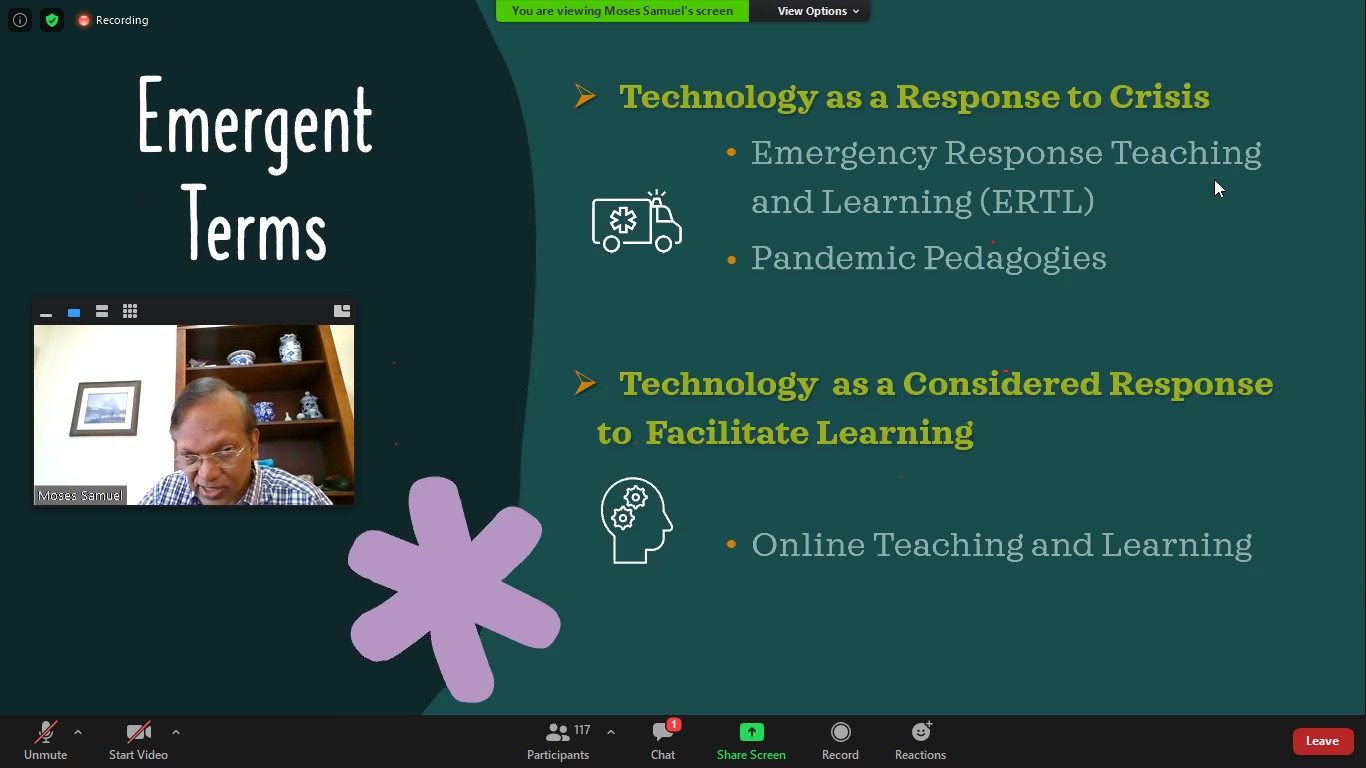
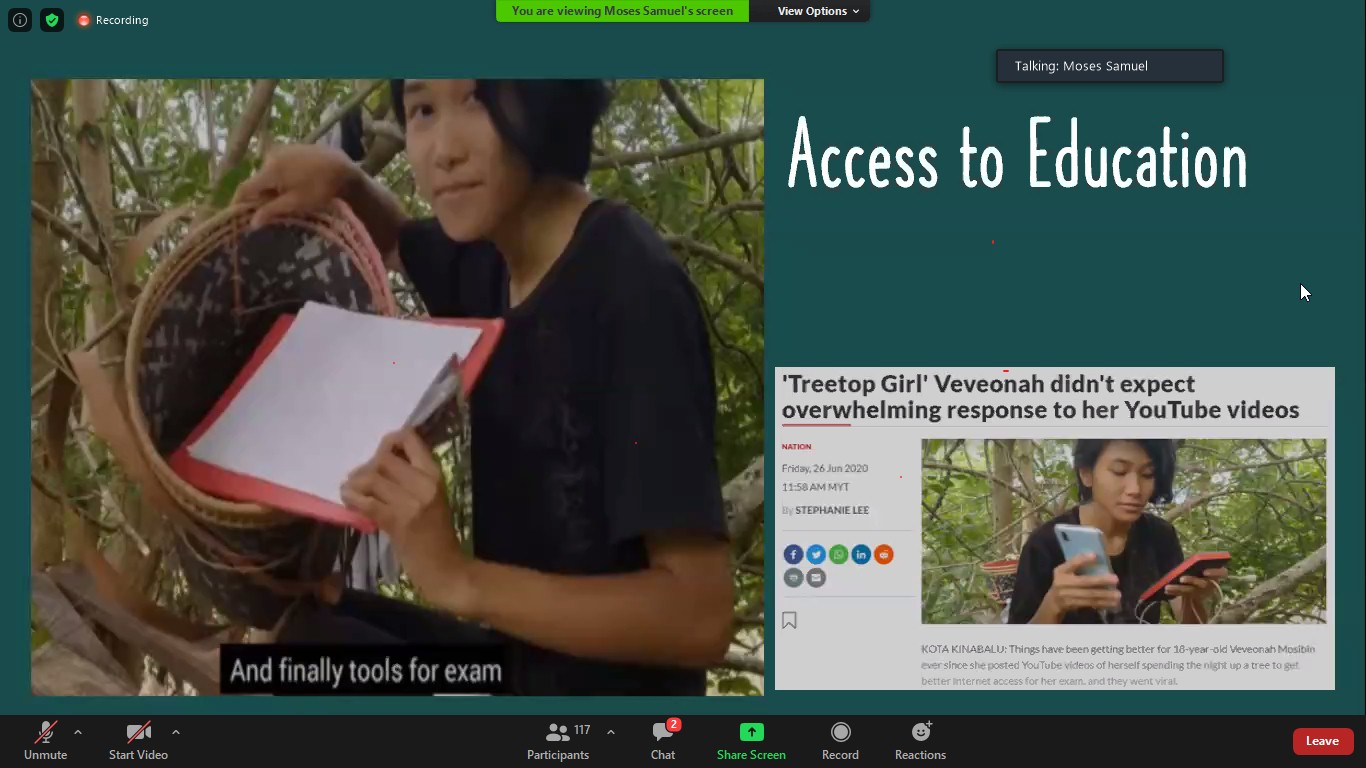
Prof Moses explaining the emergent terms about technology and its accessibility to education
The following session was a talk by Dr Dorothy which covered various topics, namely online collaboration, student engagement, online pedagogies, principles of learning intellectual skills, and resources for online collaborative learning. She kick-started her talk by sharing a fact as reported in Asia Sentinel and said, “Education experts are quickly jumping onto the online teaching model that has sprung up during the Covid-19 crisis. Such ventures are not new and very few have been very successful. Very few Malaysian academics are enthusiastic about online teaching. One lecturer said that although students are tech-savvy, multi-tasking and prefer lecture recordings, they also prefer the peer environment so they can socialise and network. Online teaching can’t replace that.”
Dr Dorothy added, “Collaborative learning is a process of teaching and learning whereby a group of learners working together towards common goals through problem solving, task accomplishment or knowledge creation. It also can be explained as the acquisition of knowledge, skills and attitudes which resulted from group interactions.” The talk then explained on different types of student engagement, namely behavioural engagement, emotional engagement and cognitive engagement. She clarified, “Behavioural engagement means attendance and involvement, absence of disruptive or negative behaviour; emotional engagement means interest, enjoyment or a sense of belonging; last but not the least cognitive engagement is defined as the extent to which students’ are willing and able to take on the learning task at hand. This includes the amount of effort students are willing to invest in working on the task and how long they persist.”
The talk also focused on online pedagogies in which Dr Dorothy emphasised on the importance of interaction between the teachers and learners in order to ensure presence. She explained, “The teachers could grab the attention of the learners via two methods, namely cognitive presence and social presence. The attention of the learners can be kept by adding video lectures, slide presentations and video viewing while conducting lecture and tutorial classes. Meanwhile, in order to maintain the social presence the lecturers could engage their students in the virtual classroom by conducting formative assessments such as virtual quiz, padlet or mindmapping activities online.
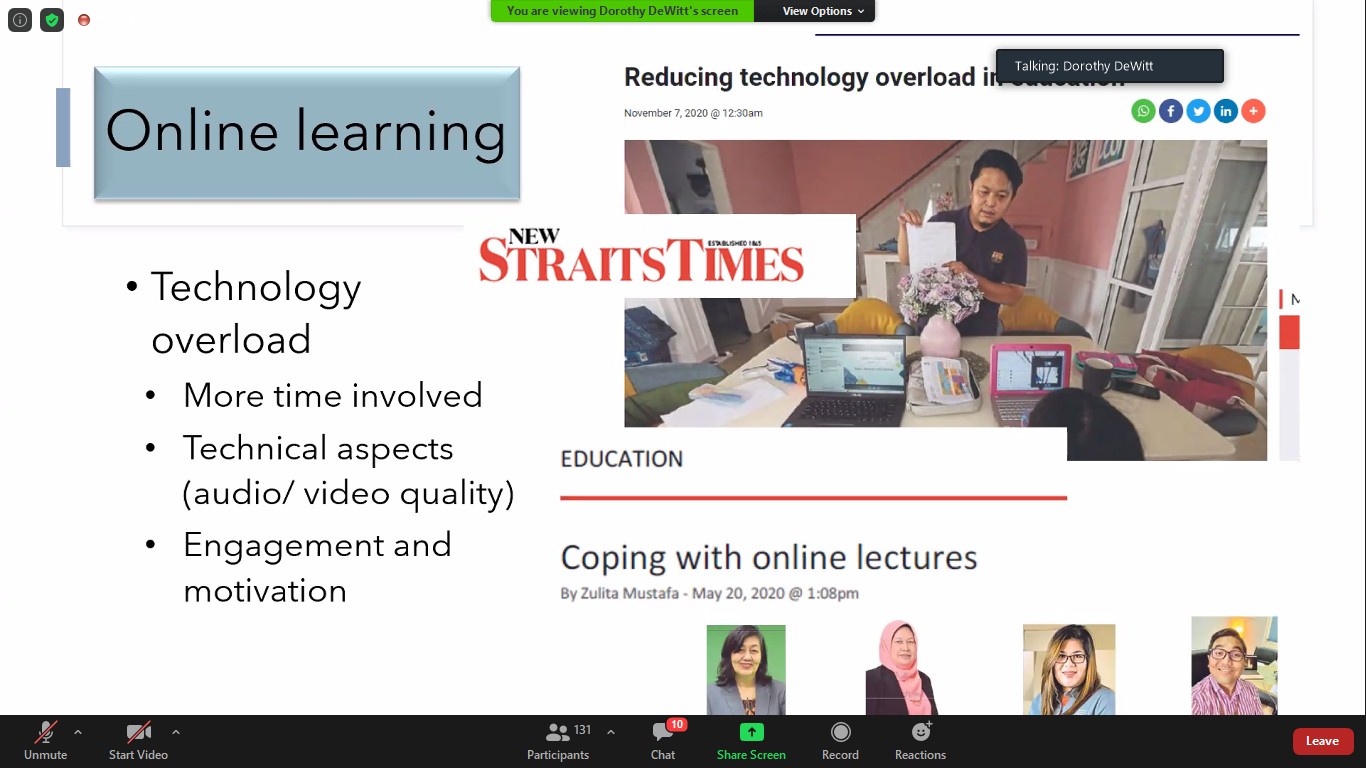
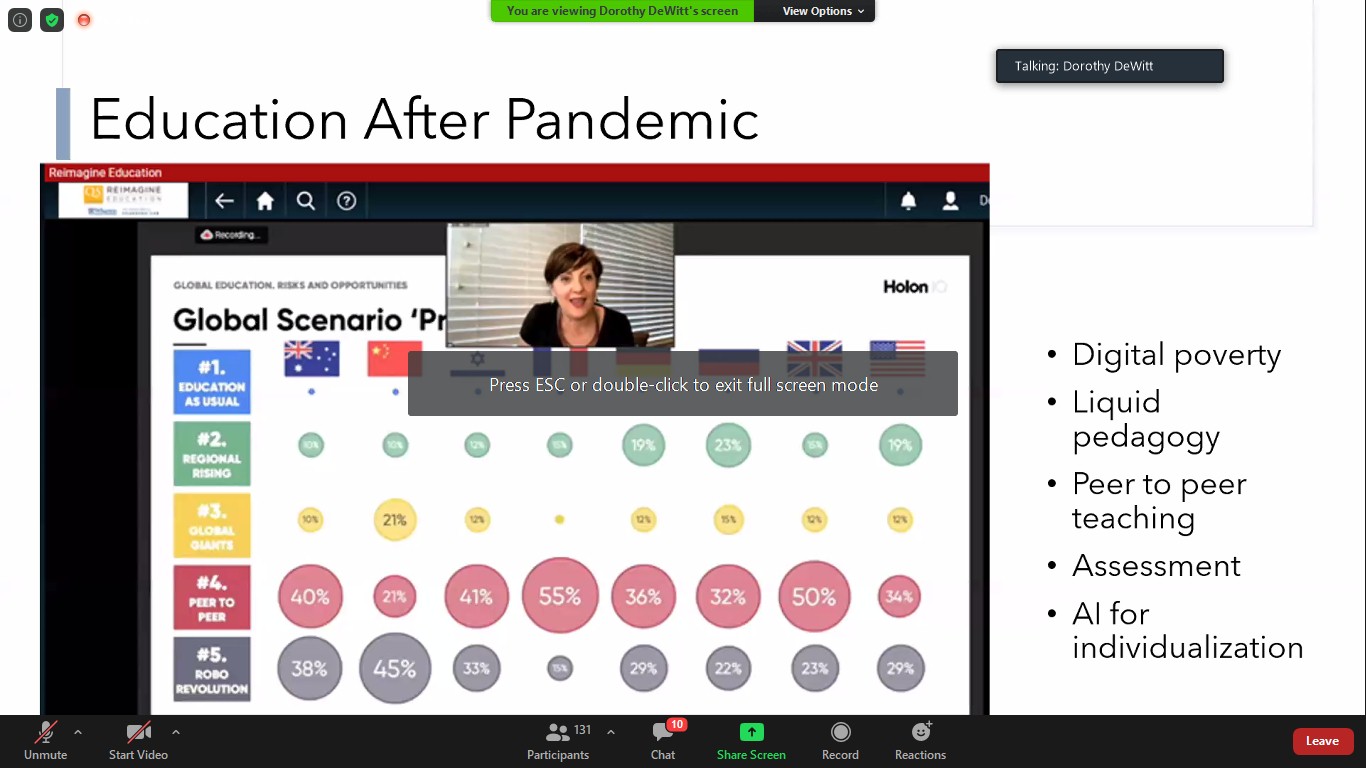
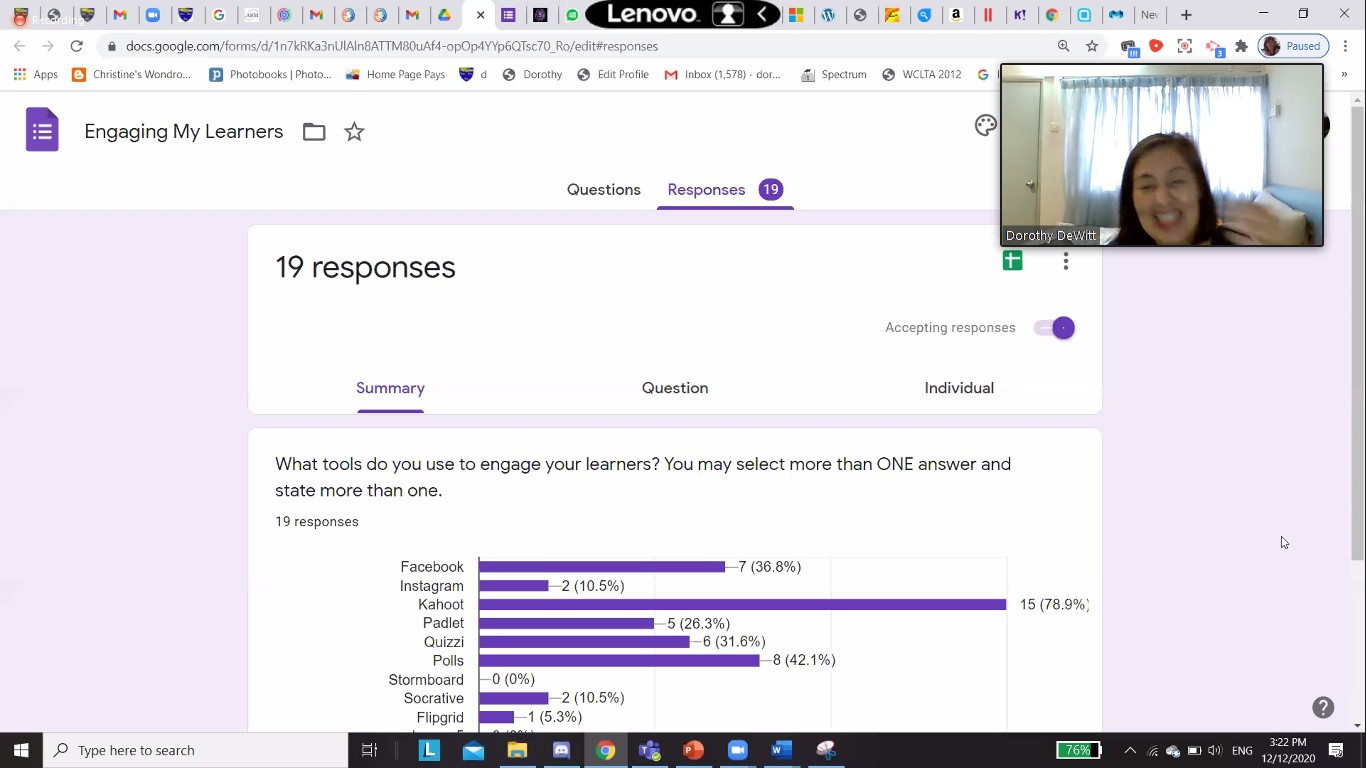
Dr Dorothy explaining the process of online learning and its connection to education before and after the pandemic
Also present during the webinar was Chairperson of CLT Dr Wei Chooi Yi, UTAR lecturers and staff.
The talk ended with an interactive Q&A session with both speakers. A virtual group photo was taken at the end in order to mark the success of the webinar.
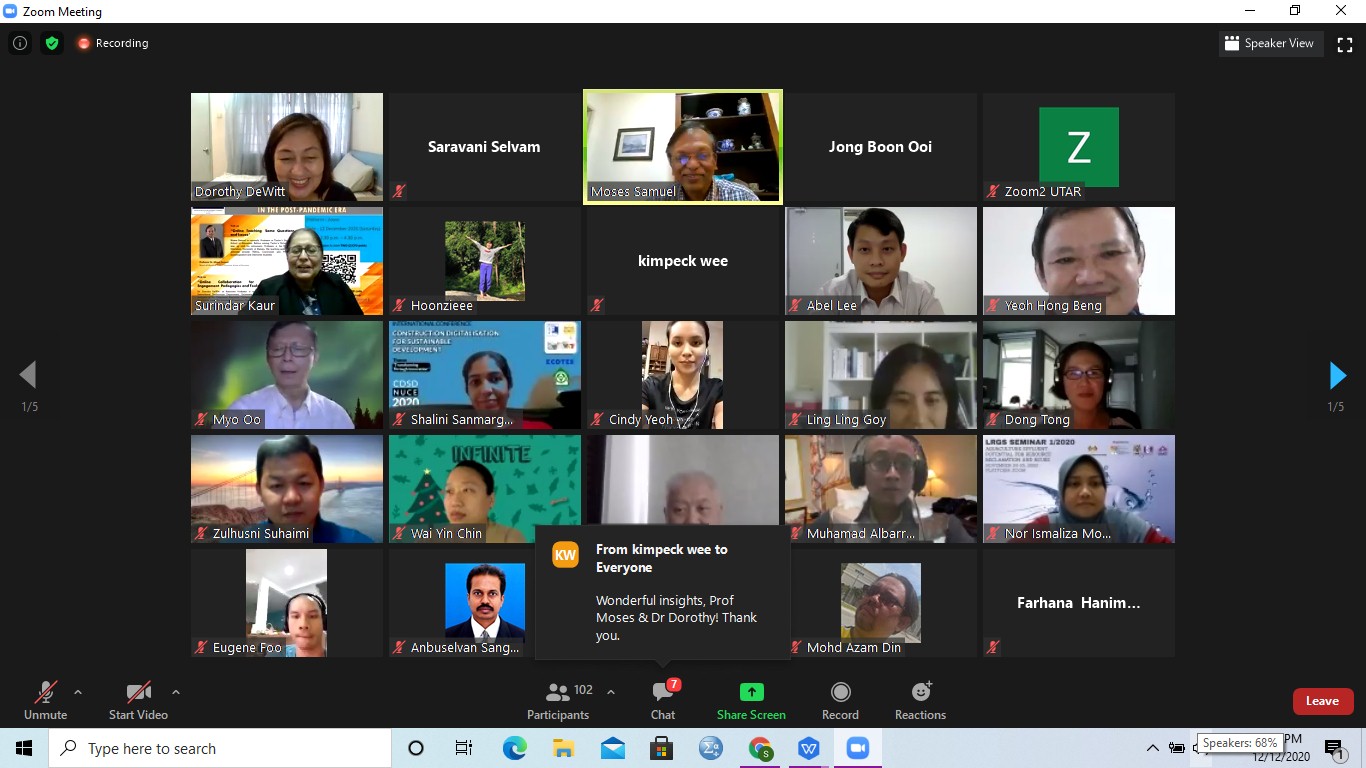
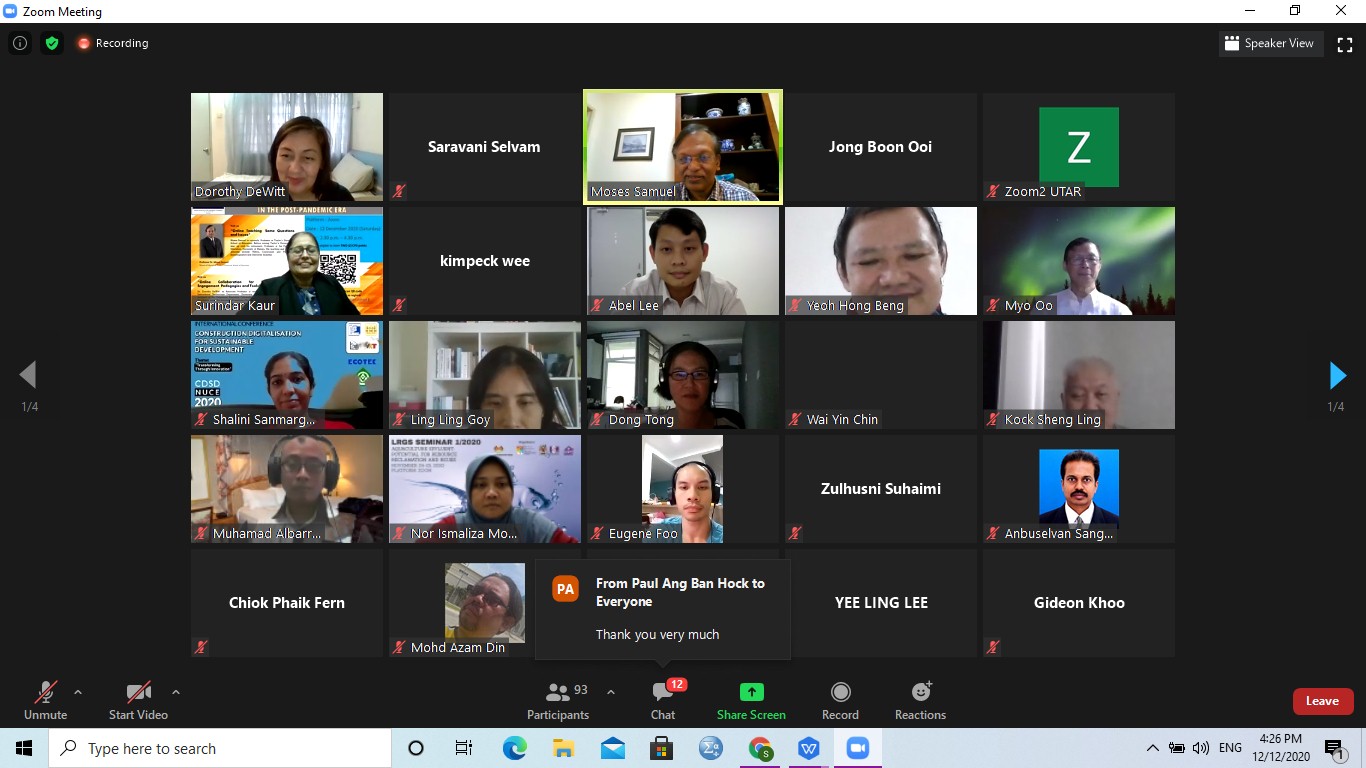
Group photo to mark the end of the webinar
© 2021 UNIVERSITI TUNKU ABDUL RAHMAN DU012(A).
Wholly owned by UTAR Education Foundation Co. No. 578227-M LEGAL STATEMENT TERM OF USAGE PRIVACY NOTICE